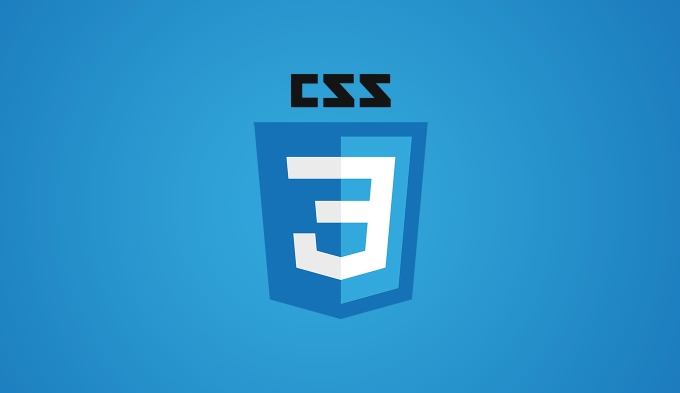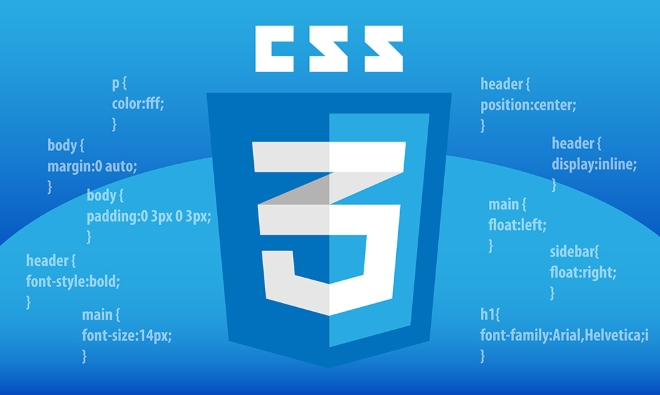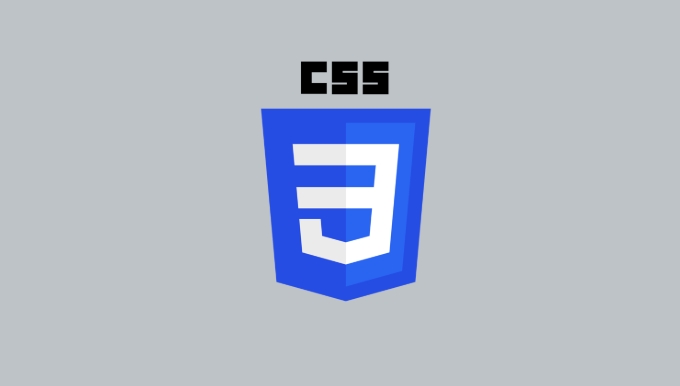How to use the CSS clip-path property for complex shapes?
Aug 01, 2025 am 07:35 AMUse the clip-path's polygon() function to create complex non-rectangular shapes. 1. Use percentage coordinates to define polygon vertices, such as polygon (50% 0%, 100% 50%, 50% 100%, 0% 50%) to generate diamond shapes; 2. Use visual tools such as Clippy to generate and export CSS code for efficiency; 3. Always use percentages to ensure responsive adaptation to avoid scaling problems caused by pixel units; 4. You can transition between polygons with the same number of points through keyframe animation, but pay attention to performance impact; 5. Use multiple layers of cropped visual effects in combination with ::before or ::after pseudo-elements to build a rich design layout, which allows for complex graphic display without additional HTML tags.

The clip-path property in CSS is a powerful tool for creating complex, non-rectangular shapes directly in the browser—without needing extra images or SVG masks. It lets you define visible portions of an element by "clipping" away parts you don't want to show. Here's how to use it effectively for complex shapes.

1. Understanding the Basics of clip-path
clip-path works by defining a clipping region. Only the parts of the element inside that region are displayed. You can use predefined shapes or create custom polygons.
Common functions:

-
inset()– for rectangles (offsets from edges) -
circle()– circular clips -
ellipse()– oval shapes -
polygon()– most flexible, for complex or irregular shapes
For complex shapes, polygon() is your go-to.
2. Creating Complex Shapes with polygon()
Use polygon() to define a series of (x, y) coordinates that form a closed shape.

.complex-shape {
clip-path: polygon(
50% 0%, /* top center */
100% 50%, /* right middle */
50% 100%, /* bottom center */
0% 50%, /* left middle */
50% 0% /* back to top center */
);
}This creates a diamond shape from a square element.
Tips for working with polygon() :
- Coordinates are percentage-based (recommended) or pixels.
- Start and end point don't need to be repeated—browser closes the shape automatically.
- You can add as many points as needed for intricate designs (eg, stars, zigzags, speech bubbles).
Example: Speech bubble tail
.speech-bubble {
background: #007acc;
padding: 20px;
clip-path: polygon(
0% 0%, /* top-left */
100% 0%, /* top-right */
100% 70%, /* right-middle */
70% 70%, /* before tail */
70% 100%, /* tail bottom */
50% 70%, /* tail tip */
30% 70%, /* after tail */
0% 70% /* back to left-middle */
);
} 3. Using Tools to Generate Complex clip-path s
Handwriting polygon coordinates is tedious. Use visual tools:
- Clippy – by Google, lets you pick shapes and tweak points.
- Motion UI (has utilities)
- Figma or Adobe XD (export
clip-pathcode)
These tools let you draw a shape and copy the generated CSS—huge time-saver.
4. Responsive Considerations
Percentages make clip-path responsive. If you use px , the shape won't scale well.
? Good:
clip-path: polygon(50% 0%, 100% 50%, 50% 100%, 0% 50%);
? Risky (not scalable):
clip-path: polygon(100px 0, 200px 100px, 100px 200px, 0 100px);
Also, test on different screen sizes—complex shapes can get distorted if the element's aspect ratio changes.
5. Animating clip-path (with caution)
You can animate between two clip-path values (if both are polygon() with the same number of points).
@keyframes open-shape {
from {
clip-path: polygon(50% 0%, 50% 0%, 50% 0%, 50% 0%);
}
to {
clip-path: polygon(50% 0%, 100% 50%, 50% 100%, 0% 50%);
}
}?? Limitations:
- Doesn't work between different shape types (eg,
circle()topolygon()). - Performance can suffer with too many points or on large elements.
- Use
will-change: clip-pathsparingly and test on mobile.
Bonus: Combining with Pseudo-elements for Advanced Effects
Use ::before or ::after with clip-path to create layered, complex visuals without extra markup.
.element::before {
content: '';
position: absolute;
inset: 0;
background: url('image.jpg');
clip-path: polygon(30% 0%, 70% 0%, 100% 50%, 70% 100%, 30% 100%, 0% 50%);
z-index: -1;
}This helps build artistic layouts, like clipped hero images or abstract dividers.
Basically, clip-path with polygon() opens up a world of design possibilities—just sketch your shape, generate the points, and drop in the CSS. It's not magic, but it's close.
The above is the detailed content of How to use the CSS clip-path property for complex shapes?. For more information, please follow other related articles on the PHP Chinese website!

Hot AI Tools

Undress AI Tool
Undress images for free

Undresser.AI Undress
AI-powered app for creating realistic nude photos

AI Clothes Remover
Online AI tool for removing clothes from photos.

Clothoff.io
AI clothes remover

Video Face Swap
Swap faces in any video effortlessly with our completely free AI face swap tool!

Hot Article

Hot Tools

Notepad++7.3.1
Easy-to-use and free code editor

SublimeText3 Chinese version
Chinese version, very easy to use

Zend Studio 13.0.1
Powerful PHP integrated development environment

Dreamweaver CS6
Visual web development tools

SublimeText3 Mac version
God-level code editing software (SublimeText3)
 How to use PHP to build social sharing functions PHP sharing interface integration practice
Jul 25, 2025 pm 08:51 PM
How to use PHP to build social sharing functions PHP sharing interface integration practice
Jul 25, 2025 pm 08:51 PM
The core method of building social sharing functions in PHP is to dynamically generate sharing links that meet the requirements of each platform. 1. First get the current page or specified URL and article information; 2. Use urlencode to encode the parameters; 3. Splice and generate sharing links according to the protocols of each platform; 4. Display links on the front end for users to click and share; 5. Dynamically generate OG tags on the page to optimize sharing content display; 6. Be sure to escape user input to prevent XSS attacks. This method does not require complex authentication, has low maintenance costs, and is suitable for most content sharing needs.
 PHP creates a blog comment system to monetize PHP comment review and anti-brush strategy
Jul 25, 2025 pm 08:27 PM
PHP creates a blog comment system to monetize PHP comment review and anti-brush strategy
Jul 25, 2025 pm 08:27 PM
1. Maximizing the commercial value of the comment system requires combining native advertising precise delivery, user paid value-added services (such as uploading pictures, top-up comments), influence incentive mechanism based on comment quality, and compliance anonymous data insight monetization; 2. The audit strategy should adopt a combination of pre-audit dynamic keyword filtering and user reporting mechanisms, supplemented by comment quality rating to achieve content hierarchical exposure; 3. Anti-brushing requires the construction of multi-layer defense: reCAPTCHAv3 sensorless verification, Honeypot honeypot field recognition robot, IP and timestamp frequency limit prevents watering, and content pattern recognition marks suspicious comments, and continuously iterate to deal with attacks.
 What are common CSS browser inconsistencies?
Jul 26, 2025 am 07:04 AM
What are common CSS browser inconsistencies?
Jul 26, 2025 am 07:04 AM
Different browsers have differences in CSS parsing, resulting in inconsistent display effects, mainly including the default style difference, box model calculation method, Flexbox and Grid layout support level, and inconsistent behavior of certain CSS attributes. 1. The default style processing is inconsistent. The solution is to use CSSReset or Normalize.css to unify the initial style; 2. The box model calculation method of the old version of IE is different. It is recommended to use box-sizing:border-box in a unified manner; 3. Flexbox and Grid perform differently in edge cases or in old versions. More tests and use Autoprefixer; 4. Some CSS attribute behaviors are inconsistent. CanIuse must be consulted and downgraded.
 How to build a PHP Nginx environment with MacOS to configure the combination of Nginx and PHP services
Jul 25, 2025 pm 08:24 PM
How to build a PHP Nginx environment with MacOS to configure the combination of Nginx and PHP services
Jul 25, 2025 pm 08:24 PM
The core role of Homebrew in the construction of Mac environment is to simplify software installation and management. 1. Homebrew automatically handles dependencies and encapsulates complex compilation and installation processes into simple commands; 2. Provides a unified software package ecosystem to ensure the standardization of software installation location and configuration; 3. Integrates service management functions, and can easily start and stop services through brewservices; 4. Convenient software upgrade and maintenance, and improves system security and functionality.
 Describe the `vertical-align` property and its typical use cases
Jul 26, 2025 am 07:35 AM
Describe the `vertical-align` property and its typical use cases
Jul 26, 2025 am 07:35 AM
Thevertical-alignpropertyinCSSalignsinlineortable-cellelementsvertically.1.Itadjustselementslikeimagesorforminputswithintextlinesusingvalueslikebaseline,middle,super,andsub.2.Intablecells,itcontrolscontentalignmentwithtop,middle,orbottomvalues,oftenu
 What is the accent-color property?
Jul 26, 2025 am 09:25 AM
What is the accent-color property?
Jul 26, 2025 am 09:25 AM
accent-color is an attribute used in CSS to customize the highlight colors of form elements such as checkboxes, radio buttons and sliders; 1. It directly changes the default color of the selected state of the form control, such as changing the blue check mark of the checkbox to red; 2. Supported elements include input boxes of type="checkbox", type="radio" and type="range"; 3. Using accent-color can avoid complex custom styles and extra DOM structures, and maintain native accessibility; 4. It is generally supported by modern browsers, and old browsers need to be downgraded; 5. Set accent-col
 How to compile SCSS to CSS?
Jul 27, 2025 am 01:58 AM
How to compile SCSS to CSS?
Jul 27, 2025 am 01:58 AM
InstallDartSassvianpmafterinstallingNode.jsusingnpminstall-gsass.2.CompileSCSStoCSSusingthecommandsassinput.scssoutput.css.3.Usesass--watchinput.scssoutput.csstoauto-compileonsave.4.Watchentirefolderswithsass--watchscss:css.5.Usepartialswith_prefixfo
 How to change text color in CSS?
Jul 27, 2025 am 04:25 AM
How to change text color in CSS?
Jul 27, 2025 am 04:25 AM
To change the text color in CSS, you need to use the color attribute; 1. Use the color attribute to set the text foreground color, supporting color names (such as red), hexadecimal codes (such as #ff0000), RGB values (such as rgb(255,0,0)), HSL values (such as hsl(0,100%,50%)), and RGBA or HSLA with transparency (such as rgba(255,0,0,0.5)); 2. You can apply colors to any element containing text, such as h1 to h6 titles, paragraph p, link a (note the color settings of different states of a:link, a:visited, a:hover, a:active), buttons, div, span, etc.; 3. Most






